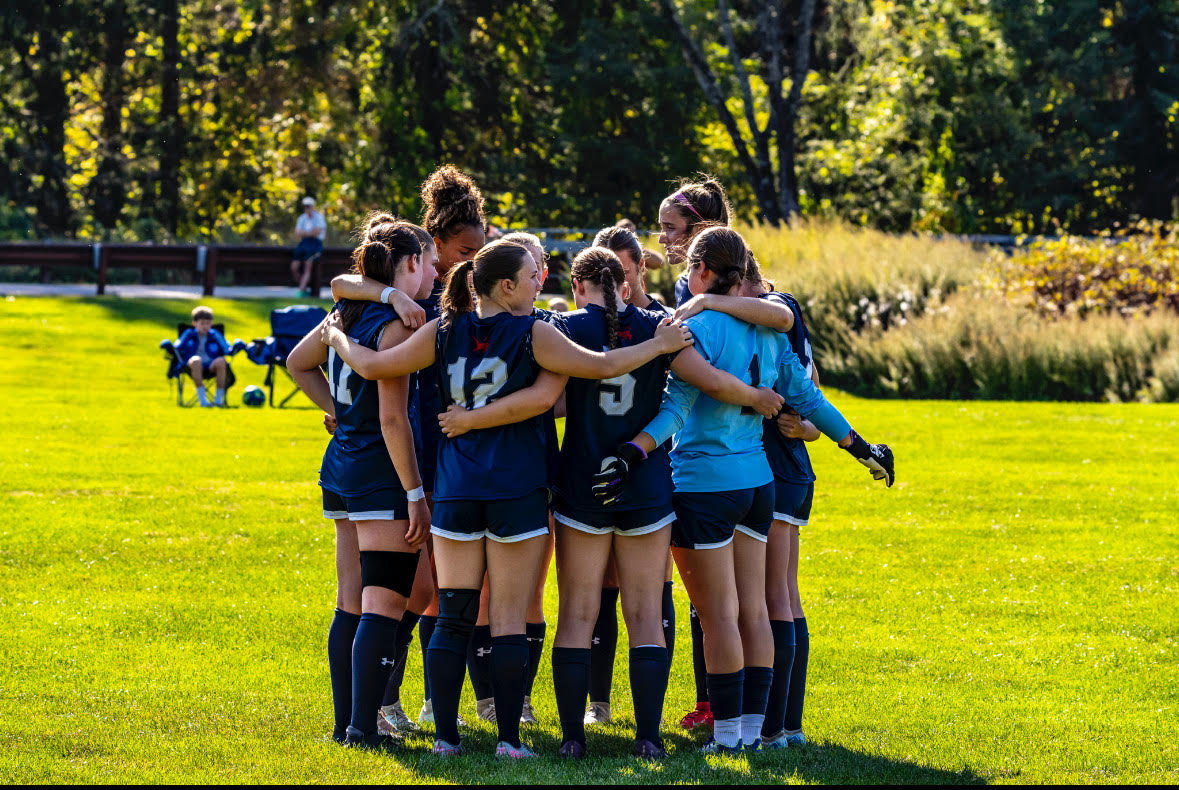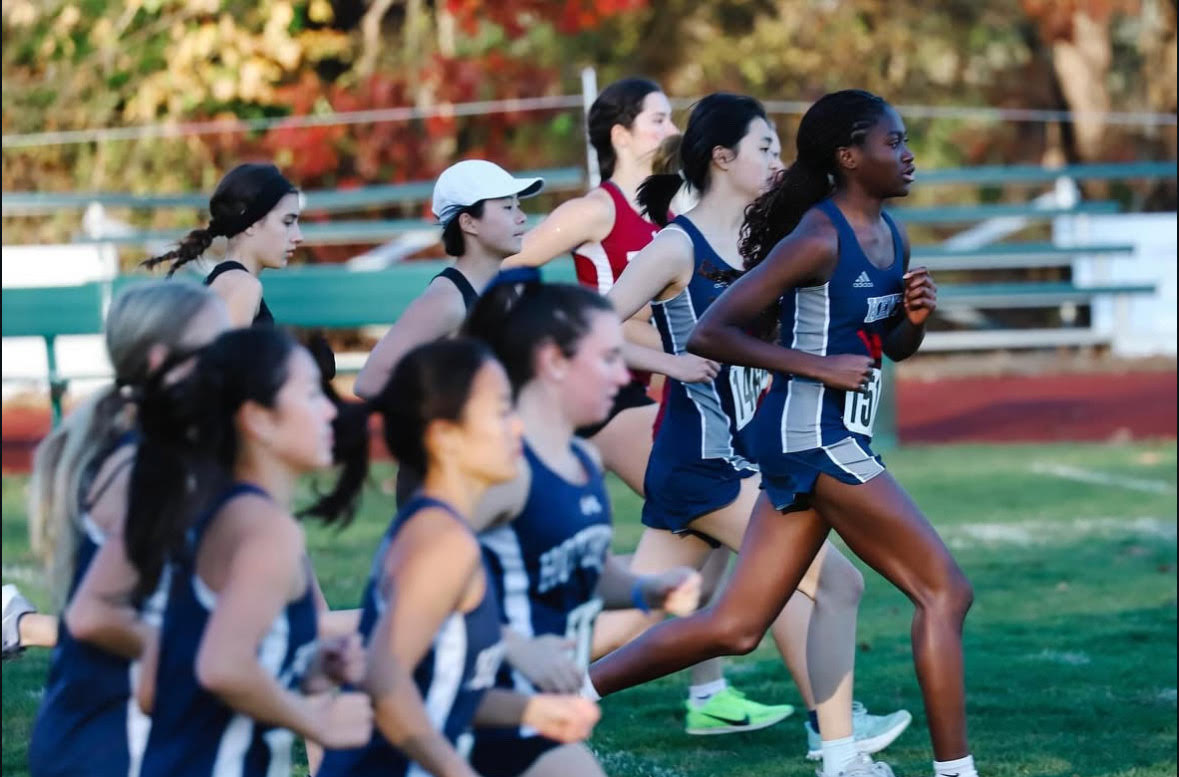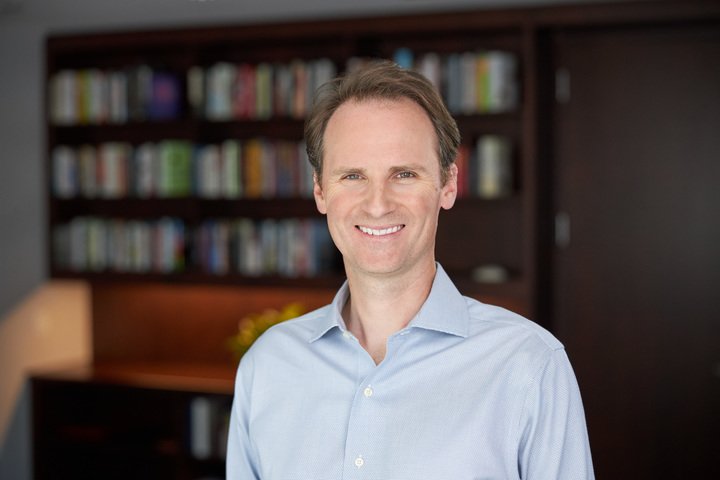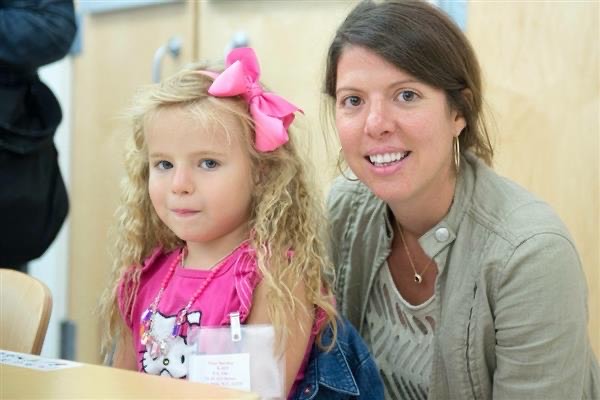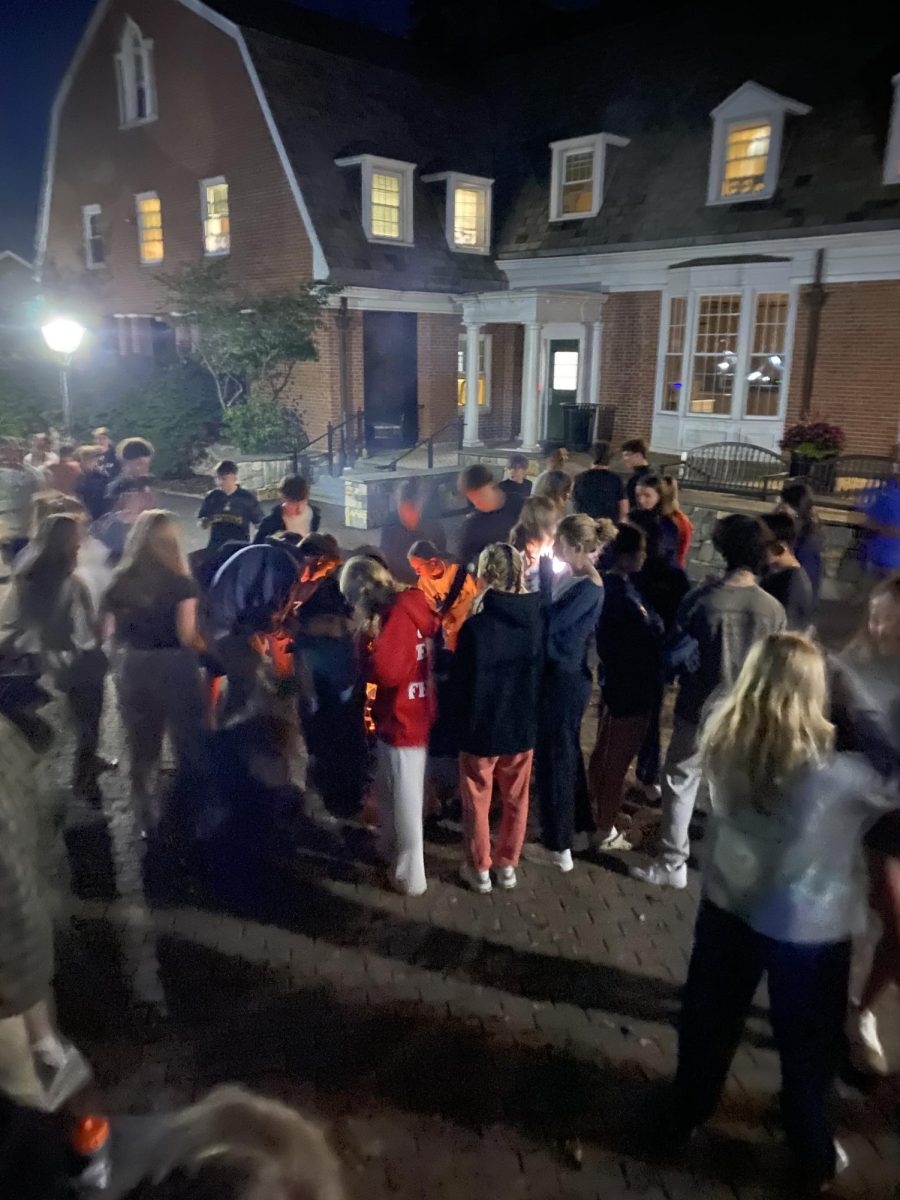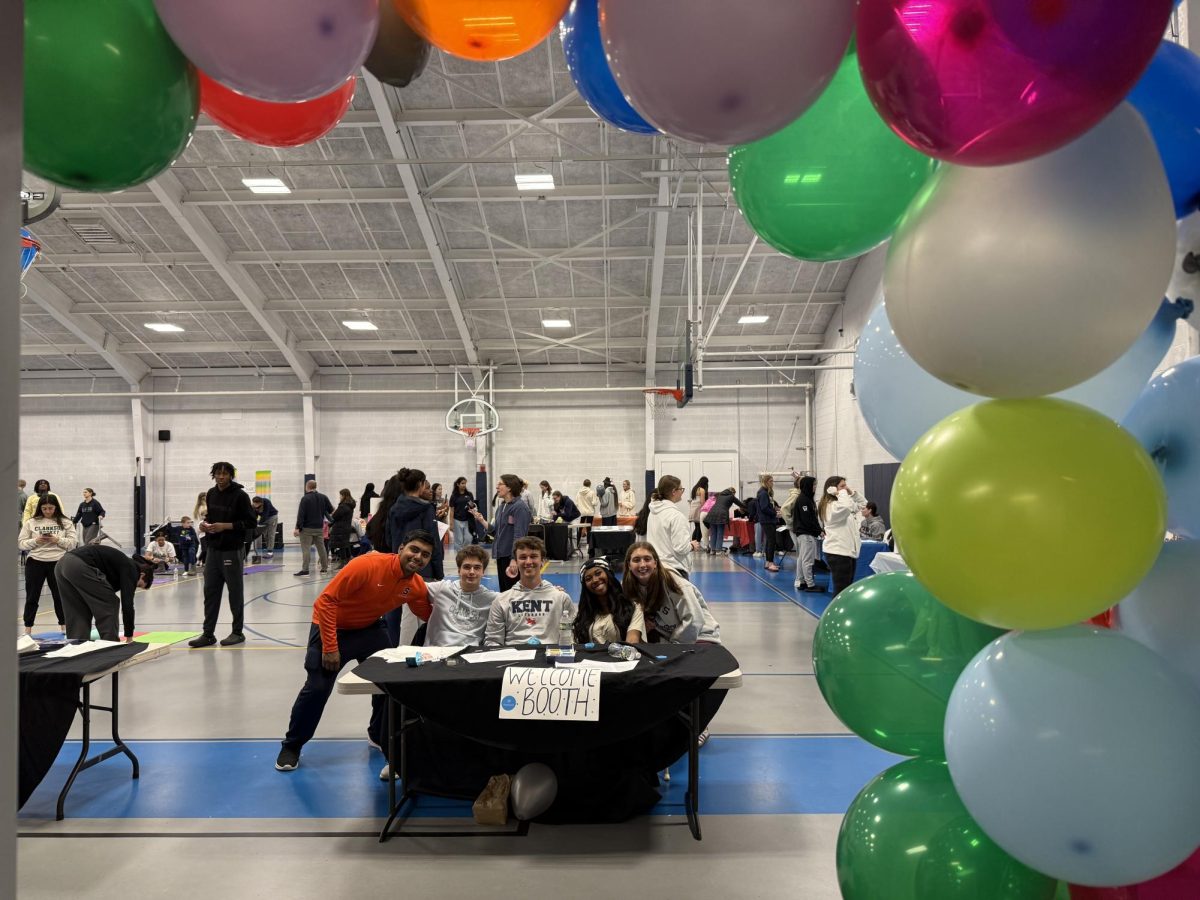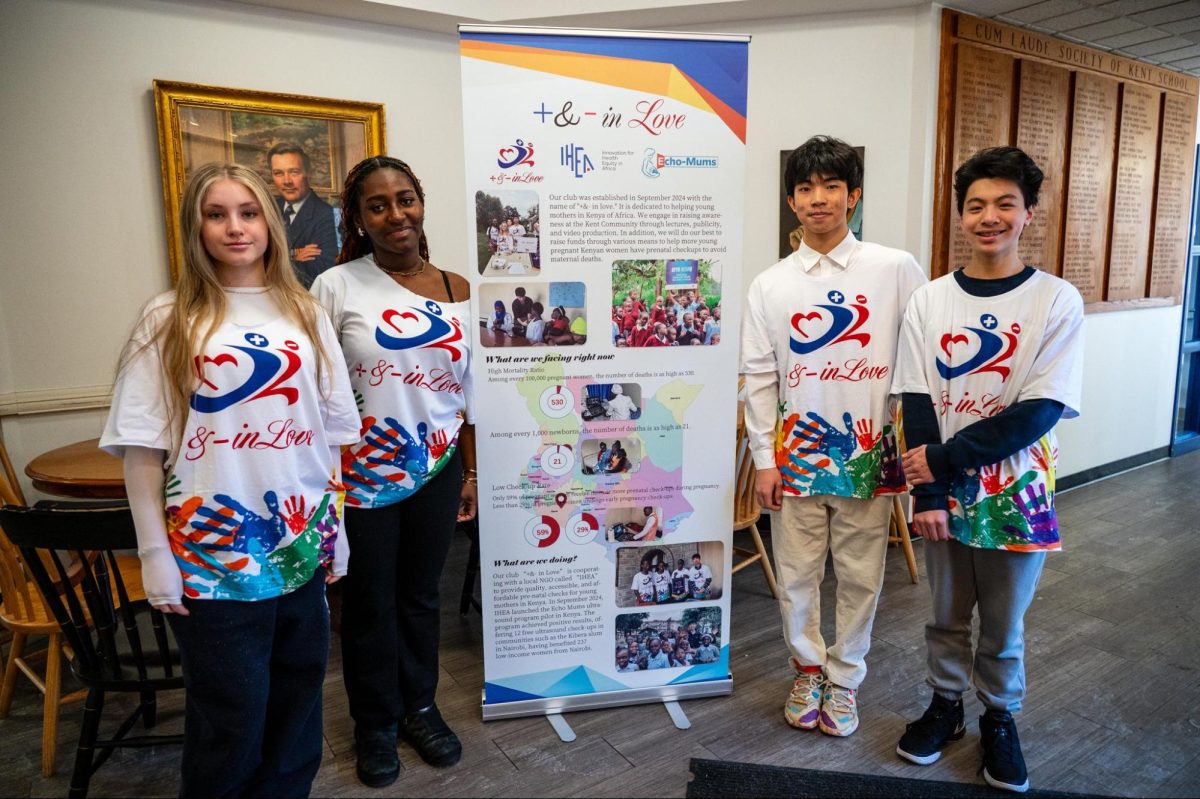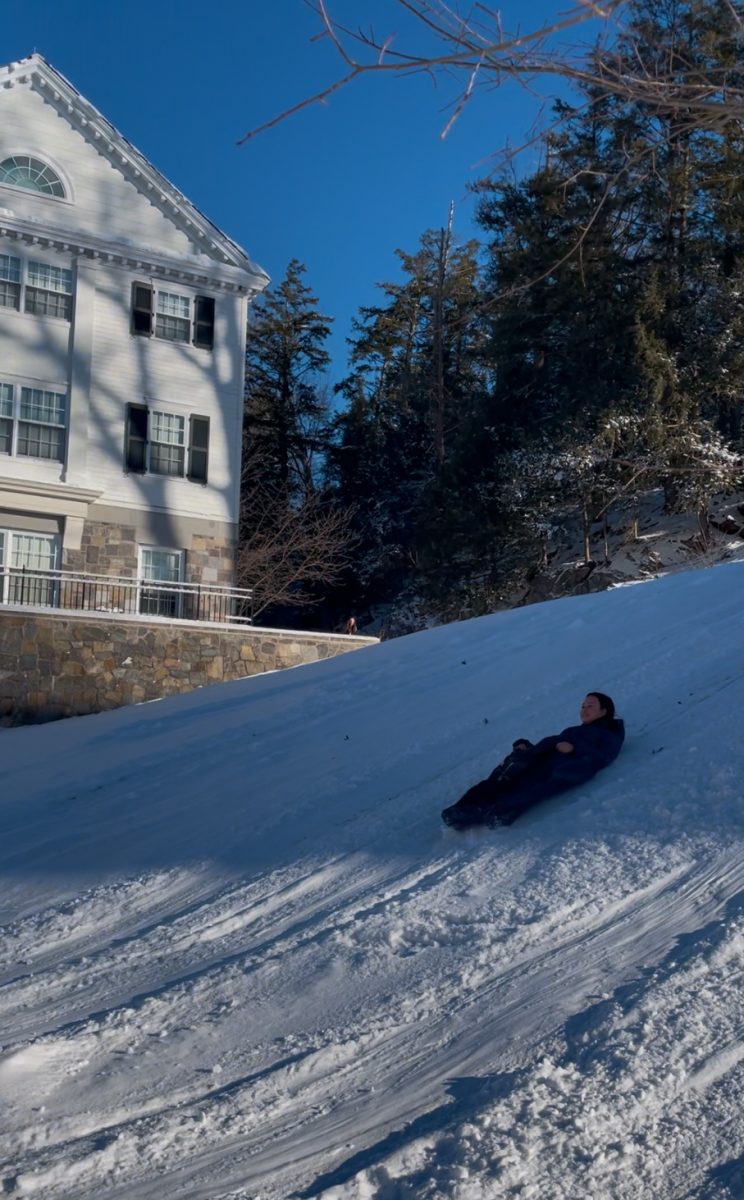On January 21st, Kent was fortunate enough to have Kaleb Joseph, a former college and professional basketball player, speak in Saint Joseph’s Chapel for the second time. After his own mental health challenges impacted his basketball career, he created the “Self Help Tour,” with the goal of destigmatizing mental health and ending the habits of suffering in silence.
Speaking to Kent students about mental health and its effect on athletics, Joseph provided everyone with examples from his life and experiences that were easily relatable, which captivated the audience’s attention. One of Joseph’s main points was that being vulnerable with others can further your relationships and allow you to get certain pressure off your chest. Joseph did a great job of explaining and proving how everyone struggles with mental health. He created a sense of connectedness as the audience saw how every student must process difficult emotions and feelings.
Ms. Clarke, the director of residential life, played a key role in bringing Joseph to Kent. She met him during her time at Cushing Academy and has followed his career since. After finding out that he was promoting his Self Help Tour through social media, Ms. Clarke decided to invite Joseph to talk to the Kent students. “We talked over the summer, and he came for preseason, and the students wanted him to come back again,” said Ms. Clarke. Clarke also commended Joseph’s appeal to the student body as a more relatable person: “I feel like the students really appreciated his talk because he is younger and easier to relate to. For adults, it helps us realize that we need to have more conversations about emotions and the way students are feeling. He communicates with a lot of students and will continue to impact them as his message continues to grow.”
Joseph’s talk was as impactful as it is meaningful. Mr. Hirschfeld loved how Joseph’s talk brought a new wave of mental health discussion throughout the campus. “Kids and faculty and staff were talking about his message,” said Mr. Hirschfeld, “and his talk definitely raised awareness about mental health and the stresses adolescents face. He came in the fall and it was the students who asked for him to come by, a sign that he was connected with a lot of kids.” Following his second visit, Kent moves on as a campus more aware about mental health.



